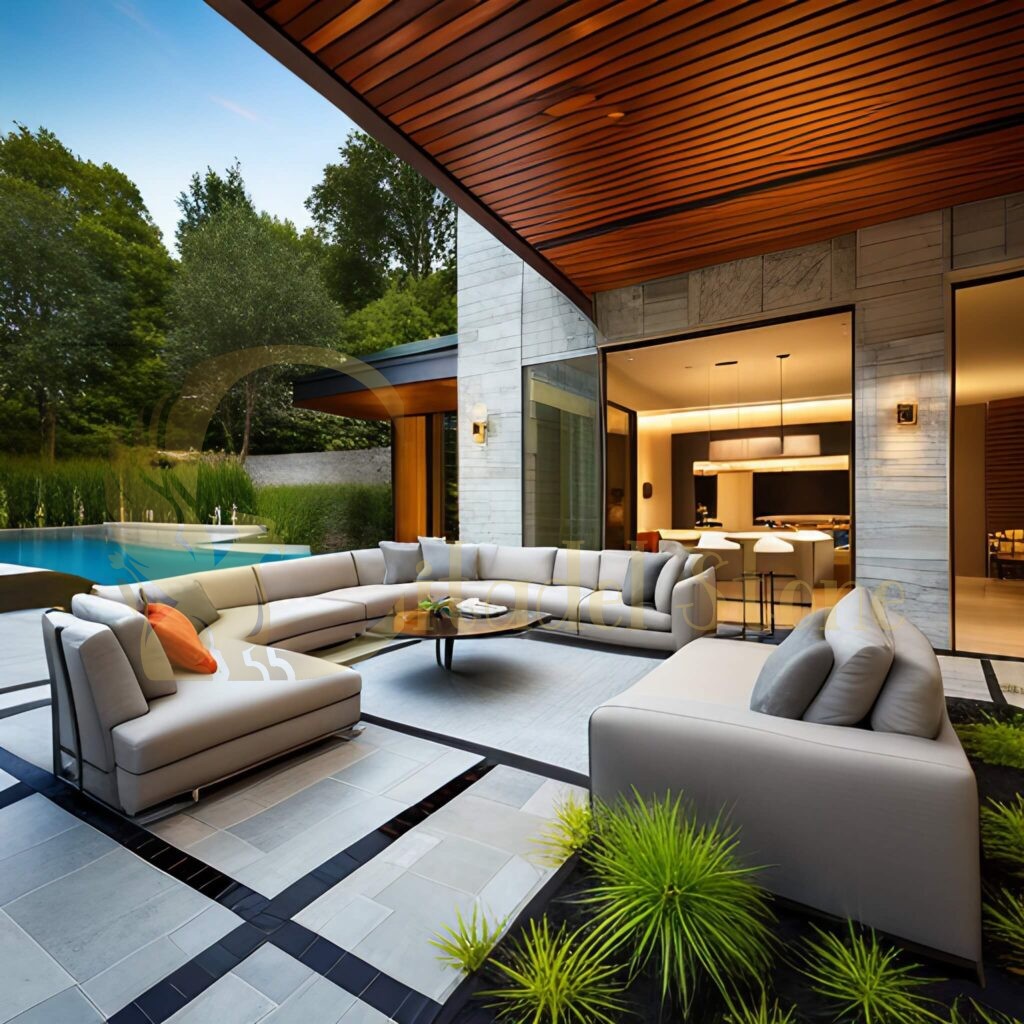When it comes to enhancing your outdoor space, few materials rival the timeless appeal and rugged durability of valiant basalt pavers. Whether you’re envisioning a sturdy driveway to welcome guests or a charming patio for quiet evenings, understanding the cost per square foot is the first step to bringing your project to life. At Citadel Stone, we believe in empowering our customers with the knowledge to budget effectively, ensuring your hardscaping dreams align with your financial plans.
In this comprehensive guide, we’ll explore the costs of basalt pavers for driveways and small patios, uncover the factors that shape pricing, and share practical budgeting tips. This article, tailored for homeowners and professionals alike, delivers unique insights to help you make informed decisions—all while boosting the value of your property with Citadel Stone’s premium offerings.
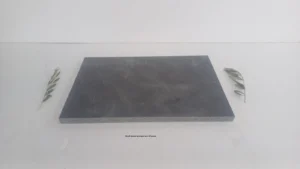
Understanding Basalt Pavers: What Makes Them Special?
Basalt pavers are crafted from volcanic rock, formed when molten lava cools and solidifies. This natural process results in a dense, resilient stone that’s perfect for outdoor applications. But what sets basalt apart from other paving options?
Key Benefits of Basalt Pavers
Strength: Built to endure heavy loads and extreme weather, basalt stands up to the toughest conditions.
Beauty: Its deep, earthy hues—think charcoal grays and near-blacks—lend a sophisticated, modern vibe.
Ease of Care: Resistant to stains and wear, basalt requires little maintenance to stay looking sharp.
Sustainability: As a natural resource, it’s an environmentally friendly choice for eco-minded homeowners.
These qualities make basalt pavers for driveways and basalt pavers for patios a top pick, but costs can vary depending on the scope and demands of your project. Let’s dive into the numbers.
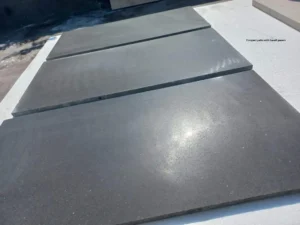
How Much Do Basalt Pavers Cost per Square Foot?
The cost per square foot for basalt pavers generally falls between $2.9 and $25, encompassing both materials and installation. However, this range shifts based on whether you’re paving a high-traffic driveway or a compact patio. Here’s a closer look at what to expect.
Driveways: Built for Strength
Driveways are the workhorses of outdoor spaces, requiring materials that can handle daily vehicle traffic and seasonal stresses. This durability comes at a premium.
Average Cost: $2.5 to $25 per square foot
What Drives the Price?
Thicker Pavers: Driveways often need pavers 2-3 inches thick to support cars and trucks, raising material costs.
Robust Base: A deep, stable foundation—typically 6-8 inches of gravel and sand—adds to labor and material expenses.
Labor Intensity: Larger areas and complex layouts demand more time and skill.
Small Patios: Style Meets Affordability
Patios, designed for foot traffic and leisure, allow for lighter materials and simpler construction, often making them more budget-friendly.
Average Cost: $2.9 to $20 per square foot
What Influences the Price?
Thinner Pavers: At 1-2 inches thick, patio pavers are less costly than their driveway counterparts.
Lighter Base: A 4-6-inch base suffices, cutting down on prep work.
Design Simplicity: Smaller spaces often feature basic patterns, streamlining installation.
These cost differences highlight the importance of tailoring your budget to the specific needs of your project—whether it’s the heavy-duty demands of a driveway or the aesthetic focus of a patio.
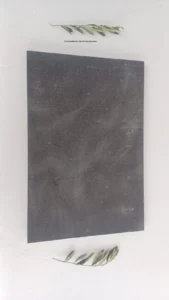
What Affects Basalt Paver Costs?
Several elements shape the final price of your basalt paver project. Knowing these can help you anticipate expenses and adjust your plans accordingly.
1. Paver Dimensions
Thicker Options: Essential for driveways, these cost more due to increased material use.
Smaller Sizes: Thinner pavers work well for patios, offering savings without sacrificing quality.
2. Stone Quality
Premium basalt with refined finishes (e.g., tumbled or polished) elevates both cost and visual impact.
3. Installation Challenges
Elaborate designs—think herringbone or circular patterns—require more time and expertise, especially for expansive driveways.
4. Site Preparation
Driveways: Need extensive excavation and base layering for stability.
Patios: Require less groundwork, keeping costs lower.
5. Labor Rates
Costs vary by location and the installer’s experience, with driveways often demanding higher rates due to their scale.
6. Extras
Edging, sealing, or drainage systems enhance functionality but add to the bottom line.
7. Project Scale
Larger driveways may qualify for bulk discounts on materials, though total costs remain significant.
By weighing these factors, you can pinpoint where to invest and where to economize, ensuring a project that’s both stunning and affordable.
Budgeting for Your Basalt Paver Project
Effective budgeting balances initial costs with long-term value. Here’s how costs break down for driveways and patios, plus tips to stretch your dollars further.
Driveway Costs
Materials: $8 to $15 per square foot for durable pavers.
Installation: $7 to $10 per square foot, depending on design.
Total: $15 to $25 per square foot.
Extras:
Base Layers: $2 to $4 per square foot for gravel and sand.
Sealing: $1 to $2 per square foot for added protection.
Budgeting Tips for Driveways
Stick to Basics: Standard paver sizes and simple layouts reduce expenses.
Invest Wisely: A strong base prevents costly repairs down the road.
Buy in Bulk: Larger projects can leverage material discounts.
Small Patio Costs
Materials: $6 to $12 per square foot for lighter pavers.
Installation: $4 to $8 per square foot, based on complexity.
Total: $10 to $20 per square foot.
Extras:
Base Layers: Minimal prep keeps costs down.
Sealing: $1 to $2 per square foot for longevity.
Budgeting Tips for Small Patios
Go DIY: Small areas are manageable for hands-on homeowners, cutting labor costs.
Mix and Match: Pair basalt with gravel or mulch for a cost-effective design.
Keep It Simple: Avoid intricate cuts to save on installation time.
These strategies help you maximize value, whether you’re paving a grand entrance or a cozy retreat.
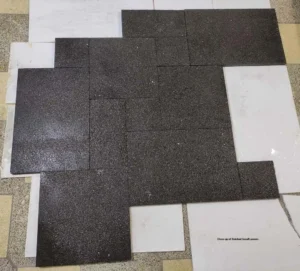
Comparing Basalt Pavers to Alternatives
To gauge basalt’s value, let’s stack it up against other paving materials.
Driveways
Concrete: $8 to $18 per square foot. Cheaper but prone to cracking.
Asphalt: $7 to $15 per square foot. Low-cost but lacks basalt’s elegance and lifespan.
Brick: $15 to $30 per square foot. Comparable pricing with less durability.
Small Patios
Concrete: $6 to $12 per square foot. Budget-friendly but less distinctive.
Flagstone: $15 to $30 per square foot. Natural but pricey and uneven.
Porcelain: $10 to $20 per square foot. Sleek but lacks basalt’s organic charm.
Basalt pavers strike a balance between cost, durability, and style, making them a standout choice for any project.
The Long-Term Payoff of Basalt Pavers
While basalt may require a higher initial investment, its benefits extend far beyond the installation phase:
Low Upkeep: Skip the frequent repairs needed for concrete or asphalt.
Property Boost: A basalt driveway or patio elevates curb appeal and home value.
Eco Appeal: Natural stone supports sustainable landscaping.
Flexibility: Easily adapt or expand your design in the future.
These perks make basalt a smart choice for those prioritizing quality and longevity.
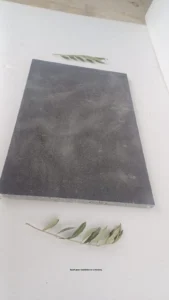
Six Unique Projects Utilizing Basalt Pavers in the USA
Case Study 1: Detroit, MI – Industrial Loft Courtyard Renewal
Project Overview:
A converted industrial loft complex in Detroit revitalized its central courtyard using reliable basalt flooring for outdoor installations to marry urban grit with modern elegance. The goal was to create a durable, low-maintenance outdoor oasis for residents and visitors.
Challenges:
Harsh Winters & Freeze-Thaw Cycles: Detroit’s sub-zero temperatures threatened surface cracking.
Urban Runoff Management: Ensuring proper drainage to prevent ice patches.
Aesthetic Cohesion: Blending the industrial heritage with contemporary design elements.
Strategy & Implementation:
Reinforced Sub-Base: Installed a compacted gravel base with geotextile underlayment to resist frost heave.
Permeable Joint System: Used jointing sand to promote infiltration and reduce runoff.
Custom Layout: Laid basalt pavers in a staggered herringbone pattern to echo warehouse brickwork and improve load distribution.
Results & Benefits:
Enhanced Durability: No freeze-thaw damage observed after two winter seasons.
Improved Safety: Reduced ice accumulation, minimizing slip hazards.
Visual Impact: The courtyard now serves as a sought-after communal space, boosting property value.
Case Study 2: Little Rock, AR – Suburban Family Patio Installation
Project Overview:
In a Little Rock suburb, a family sought to upgrade their backyard patio with a material that could withstand hot summers and sudden thunderstorms. Affordable black basalt tile for large projects were selected for their heat tolerance and non-slip surface.
Challenges:
High Summer Heat: Surface temperatures can exceed 60°C (140°F).
Heavy Rain Events: Flash floods required rapid surface drainage.
Child Safety: Slip resistance around the pool area was paramount.
Strategy & Implementation:
Light-Reflective Finish: Chose lightly sandblasted basalt pavers to reduce heat absorption.
Integrated Drainage Channels: Created linear channels beneath paver joints to channel water away.
Rubberized Jointing Compound: Enhanced underfoot grip in wet conditions.
Results & Benefits:
Cooler Surface: Patio stayed up to 10°C cooler than concrete alternatives.
Rapid Drainage: No standing water after 30-minute downpours.
Family-Friendly: Slip incidents dropped to zero, earning top safety reviews.
Case Study 3: Billings, MT – Mountain Lodge Entrance Upgrade
Project Overview:
A ski lodge near Billings modernized its main entrance with stylish outdoor basalt tiles for beautiful exteriors, aiming to maintain a rustic mountain feel while providing robust performance in snow and ice.
Challenges:
Heavy Snow Loads: Continuous snow removal operations risk paver displacement.
Ice Formation: Freeze-thaw cycles created slick surfaces.
Rustic Aesthetic: Needed a natural stone look consistent with mountain architecture.
Strategy & Implementation:
Rough-Textured Pavers: Selected hand-split basalt with a textured surface for traction.
Locking Edge Restraints: Used metal edging to secure paver perimeter against snowplow impact.
Heated Sub-Base Strips: Integrated electric heating cables beneath key walking paths to melt ice.
Results & Benefits:
Zero Displacement: No paver shifting despite frequent plowing.
Ice-Free Walkways: Guests reported consistently safe entryways, even on sub-20°C mornings.
Authentic Look: The hand-split finish complements the lodge’s timber and stone façade.
Case Study 4: Providence, RI – Waterfront Promenade Enhancement
Project Overview:
Providence’s Riverwalk district replaced aging concrete paths with elegant basalt tiles honed finish for home improvements to improve durability, manage tidal water, and uplift the area’s historic character.
Challenges:
Tidal Flooding: Periodic river overflows risked water damage.
Salt Corrosion: Proximity to brackish water could degrade paver material.
Historic Context: Needed materials in keeping with colonial-era architecture.
Strategy & Implementation:
Marine-Grade Basalt: Chose dense, low-porosity pavers resistant to salt penetration.
Recessed Channels: Designed recessed channels between paver rows to direct floodwater back to the river.
Color Matching: Selected dark gray basalt matching nearby historic cobblestones.
Results & Benefits:
Resilient Surface: No salt-related spalling after two years of tidal exposure.
Efficient Drainage: Floodwater returns to the river within minutes, minimizing downtime.
Cultural Fit: The basalt promenade preserves Providence’s historic ambiance while delivering modern performance.
Case Study 5: Burlington, VT – Eco-Campus Pathway Project
Project Overview:
A college campus in Burlington installed durable basalt black tiles for beautiful, easy-to-maintain surfaces along new eco-learning trails to showcase sustainable materials and support stormwater management goals.
Challenges:
Green Building Goals: Materials needed low embodied energy and natural sourcing.
Permeability: Pathways had to absorb rainfall to reduce storm sewer loads.
Student Accessibility: Smooth, slip-resistant surfaces required for ADA compliance.
Strategy & Implementation:
Locally-Quarried Basalt: Reduced transportation footprint and supported regional industry.
Permeable Installation: Used open-joint installation with aggregate bedding for infiltration.
Surface Treatment: Applied eco-friendly sealant enhancing color and slip resistance without VOC emissions.
Results & Benefits:
LEED Contributions: Pathways contributed points toward the campus’s LEED Silver certification.
Stormwater Reduction: On-site monitoring shows 45% reduction in runoff volume.
Inclusive Design: Smooth basalt surfaces meet accessibility standards, benefiting all users.
Case Study 6: Charleston, WV – Riverfront Park Renovation
Project Overview:
Charleston’s new Riverfront Park incorporated reliable basalt black tile for high-performance spaces in plazas and seating areas to create a vibrant public space that endures West Virginia’s humid summers and freezing winters.
Challenges:
Seasonal Extremes: Ranging from 35°C summers to −15°C winters.
Public Durability: Heavy foot traffic during festivals and daily use.
Visually Inviting: Needed a welcoming atmosphere for tourists and locals.
Strategy & Implementation:
Multi-Tone Basalt Blend: Combined light and dark pavers for a dynamic, sun-lit effect.
Robust Sub-Base: Installed a compacted stone base with geogrid reinforcement.
Protective Sealant: Applied a high-performance seal to guard against staining from food vendors and events.
Results & Benefits:
All-Season Performance: No cracking or color degradation across seasonal cycles.
Festival-Ready Durability: Withstood crowds of up to 10,000 without maintenance issues.
Enhanced Appeal: The park’s plaza has become a signature City landmark, increasing visitor numbers by 30%.
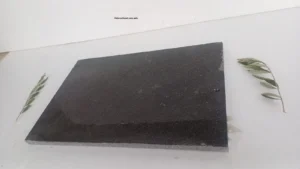
Wrapping Up: Plan Your Basalt Paver Project with Confidence
From driveways that make a bold statement to patios that invite relaxation, basalt pavers deliver unmatched beauty and resilience. With costs ranging from $2.9 to $25 per square foot for driveways and $2.5 to $20 for patios, budgeting wisely ensures you get the most from this premium material. At Citadel Stone—your stone wholesaler delivering excellence nationwide, we’re here to guide you every step of the way, offering top-tier basalt pavers tailored to your vision.
Ready to transform your outdoor space? Reach out to Citadel Stone for a custom quote and expert advice—let’s build something extraordinary together.

